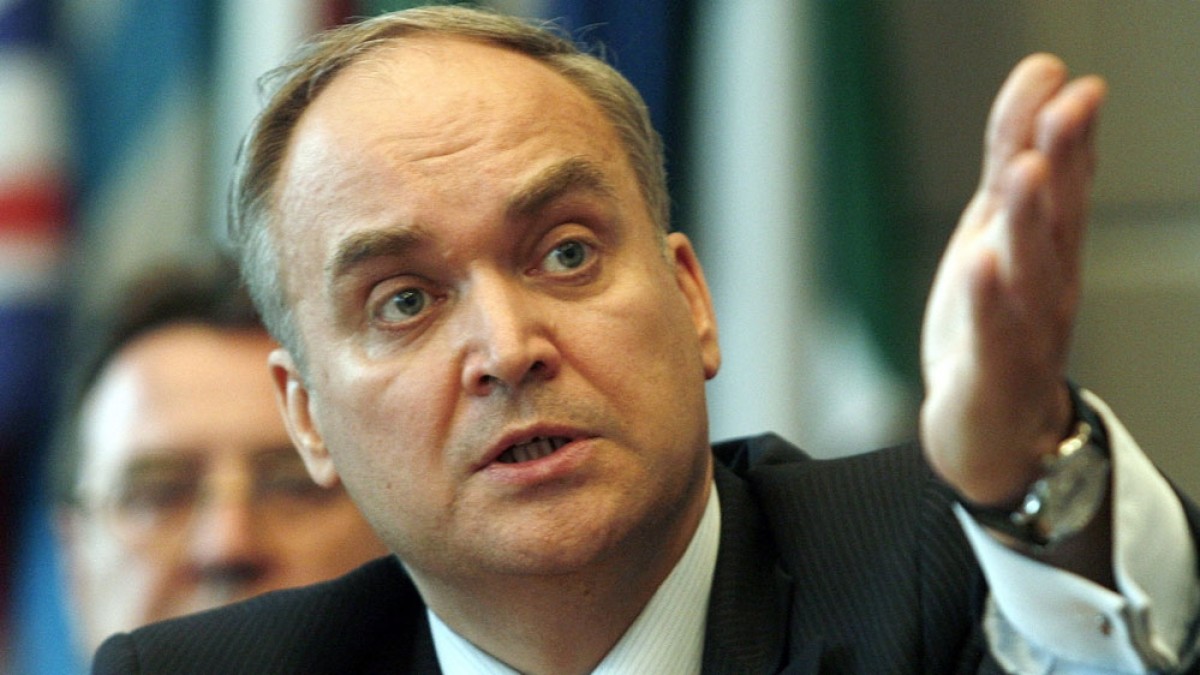June 20—Newsweek June 18 presented Russia’s peace proposal, as explained by Russian Ambassador to the U.S. Anatoly Antonov. It began with quoting Antonov as stating: “There is a path to peace, even if it is thorny.”
Asked about Ukraine’s “peace” conference in Bürgenstock, Switzerland, Antonov replied that “the goal of such an advertising campaign is not to stop, but to prolong the bloody ‘project’ that the West has been implementing for more than 10 years.” The Bürgenstock show was “purely opportunistic: to create an illusion of widespread support for the ‘peace formula’ in various capitals, but in reality, to hush up any doubts about the legitimacy of the Kiev regime, which has already been bankrupt for a long time, both politically and economically. This fact was, actually, confirmed by the Swiss organizers, who at the end of the event could only state differences in views on the situation in the East of Europe. While the key thesis was conveyed by representatives of developing nations, those few who had been persuaded to participate and came to the Alpine resort asked directly into the microphone: ‘What was the point of inviting us to a hall where Russia is not present?’”
Newsweek reported Antonov’s contention that Russia’s military operation was not unprovoked, citing his argument that the West had pushed for a war “by pursuing the eastward expansion of the NATO military alliance and supporting the popular protests that overthrew Ukraine’s government in favor of a pro-West administration in 2014.” That has caused the eight years of conflict.
Antonov turned to Putin’s peace proposal: “Direct statements by President Vladimir Putin on the possibility to end hostilities as quickly as possible under clear and well-calibrated conditions contrast sharply with the Western capitals’ idle talk and failed conferences.” Moscow’s “proposals include withdrawal of the Ukrainian Armed Forces from four regions of Russia; confirmation of the status of Crimea, Sevastopol, [Donetsk People’s Republic] D.P.R., [Lugansk People’s Republic] L.P.R., Kherson, and Zaporozhye regions as subjects of the Russian Federation; Kiev’s refusal to join NATO; Ukraine’s status as a neutral, nonaligned, and nuclear-free state; its demilitarization and denazification; lifting of Western sanctions; ensuring the rights, freedoms and interests of Russian-speaking citizens of the republic. Conversation on the above-mentioned issues should be conducted without ‘imperial’ dictates and orders from the White House. It is high time the United States recognized the futility of constant pursuit to enforce its will on all countries. Realize that it will no longer be possible to deter the growing shift towards multipolarity.”
Antonov also dismissed Western warnings that Russia is seeking to expand into Eastern Europe. He stated: "The notorious ‘Russian threat’ and undisguised crazy ‘scary stories’ about our alleged readiness to attack NATO if Russia is not stopped in Ukraine are nothing but an embodiment of the United States’ intentions to keep a tight rein on its satellites, primarily in Europe. The aim is to finally turn the continent into the U.S. ‘backyard’, which is not entitled to its own opinions nor its own history. Here in D.C., they apparently prefer not to notice that by pursuing such policy the Administration is undermining ‘American leadership.’…
“Russia pursues dialogue and peace, the parameters of which should not be discussed in a hurry, just for the sake of it, as well as pretty propaganda photos. We remain ready for a serious, thoughtful conversation. We don’t set any deadlines.” Newsweek said: “Such a conversation, Antonov argued, would also involve a broader discussion regarding the regional security architecture, one in which Russian and U.S. officials have long accused one another of promoting aggressive agendas.”
Then the magazine quoted Antonov again: “We invite all interested capitals to begin large-scale work to build truly equal and indivisible security in Eurasia, based on mutual respect for one and all. The new system could become the foundation of a new architecture reflecting transition to multipolarity. There will be no place for aggressive political and economic dominance of individual nations, as well as fragmentation into separate blocs. This is the only way to prevent the outbreak of major international conflicts.”
However, if the West ignores Russia’s call for such a discussion, Antonov went on to warn: “If in response we continue to hear only Russophobic barking and calls to use more Western weapons and economic sanctions against us, global risks will only increase. I am sure this is not in the best interests of the citizens of the United States.”




